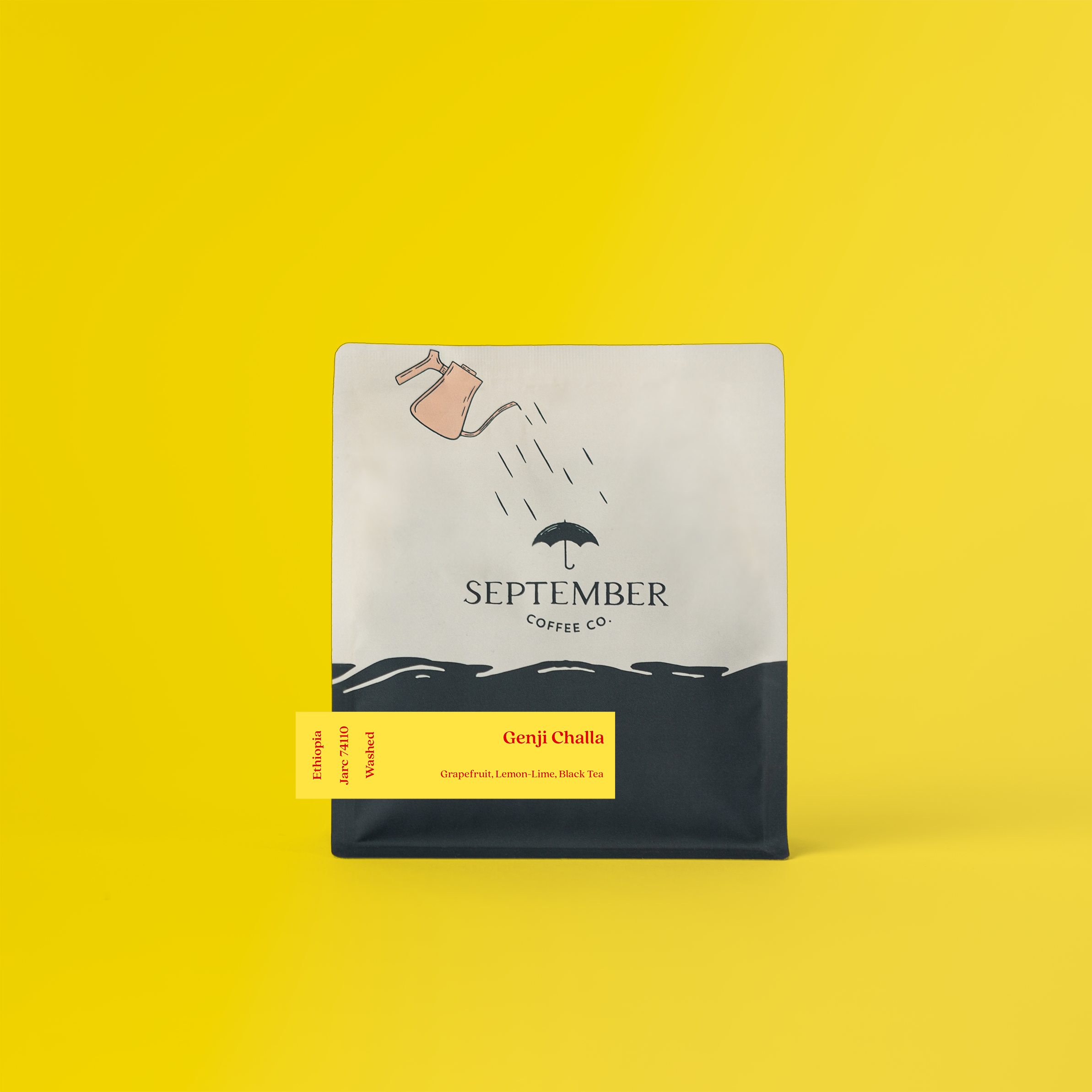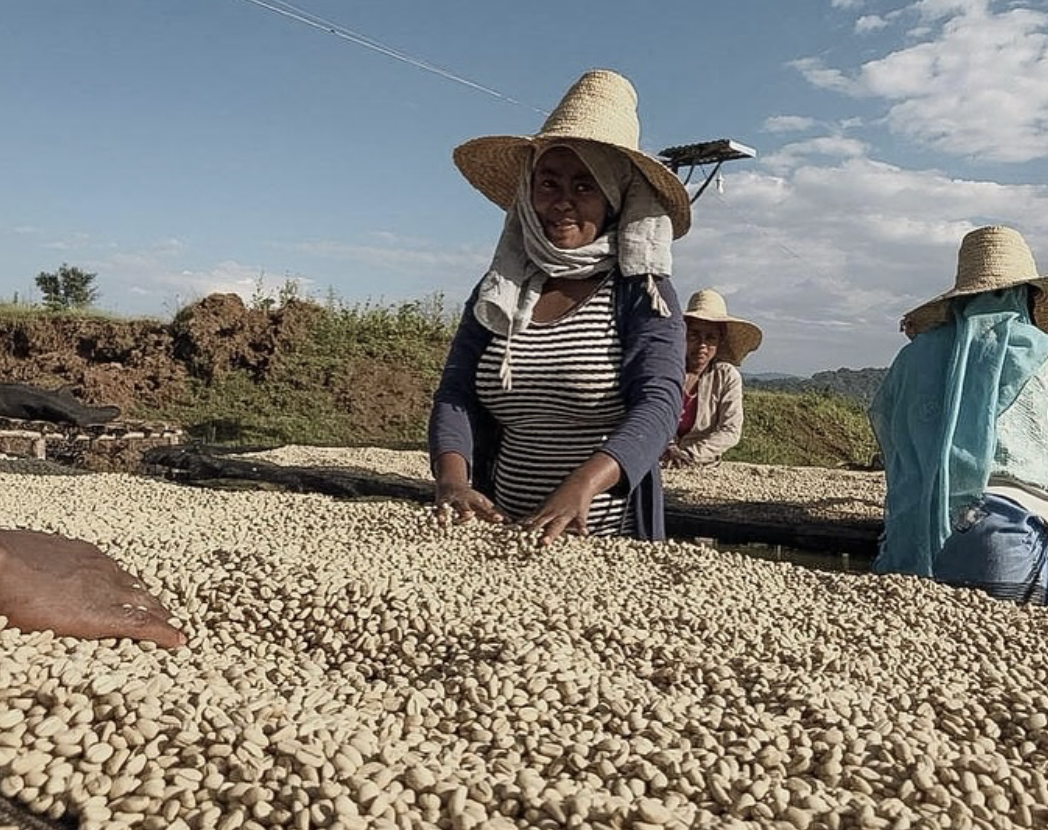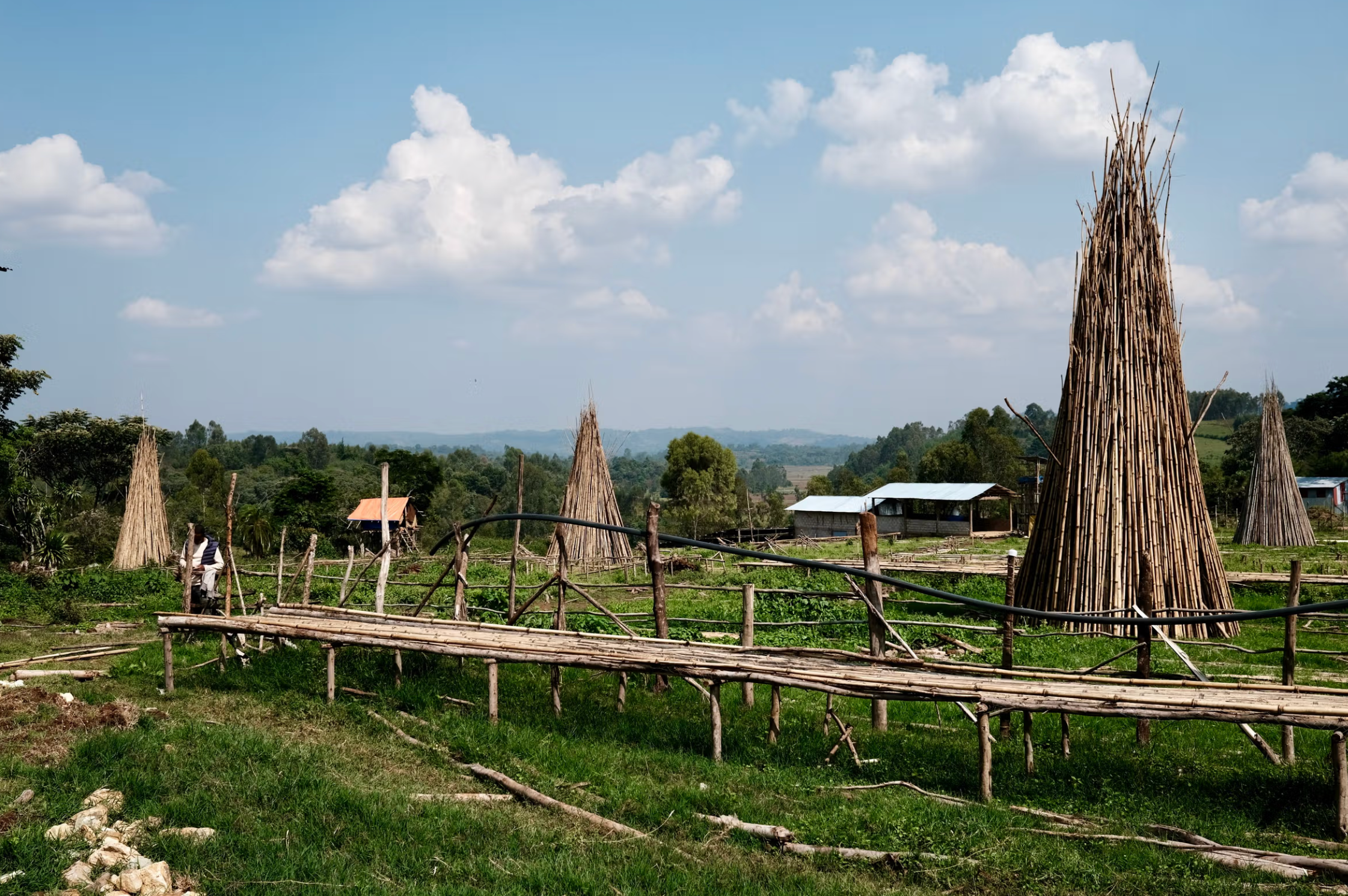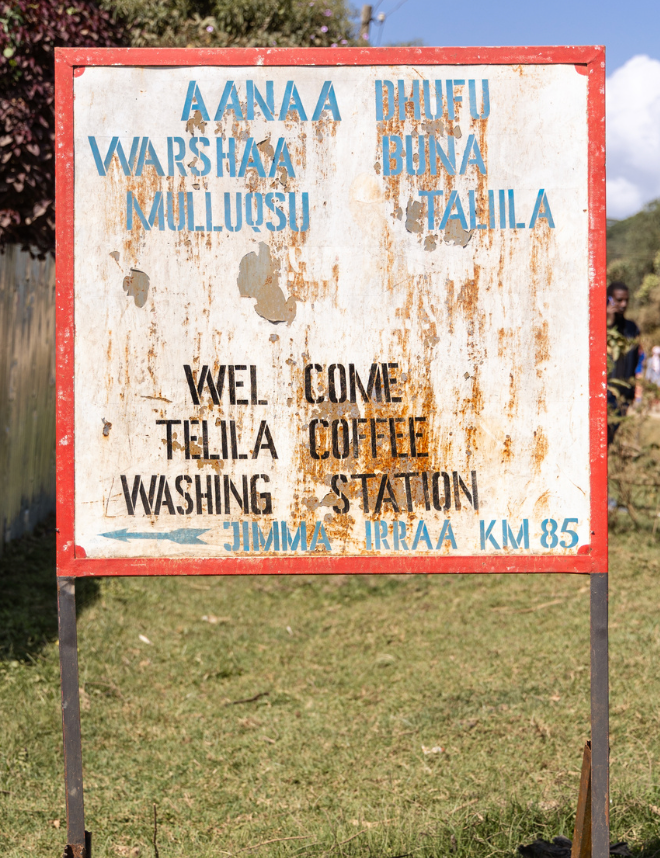



Genji Challa - Ethiopia
Our second year working with this lot from Mike Mano at Telila washing station. This year's harvest presents more of what we have come to expect from this stellar washing station. In the cup we get juicy grapefruit, black tea florals and a bright lemon-lime acidity.
250G
Genji Challa - Ethiopia
September Coffee Roastery
119 Iber Road
Unit 9
Ottawa ON K2S 1E7
Canada
- Variety: 74110
- Country: Ethiopia
- Region: Jimma Zone, Gera Woreda
- Process: Washed
- Altitude: 2000 MASL
- Harvest: 2023/2024
- Producer: Mike Mamo
- Washing Station: Telila
- Roast Level: Light
 In the cup
In the cup
We get juicy and bright grapefruit, delicate black tea florals, and a lemon-lime acidity. This coffee is light in body with a long grapefruit finish.
 Funky
Funky
 Experimental
Experimental
 About The Producer
About The Producer
Telila Coffee Washing Station (CWS) is owned and run by Mike Mamo. The washing station was purchased in 2019 and in 2019/2020 the first harvest was put into operation. With a real focus on quality control and experimentation, we are excited to be working with Mike and his team at Telila. In addition to producing impeccably clean washed lots, Telila also produces fermented honey lots, and the occasionally naturally produced lot. Most of the cherry being delivered is one of two varieties; Gibirinna 74110 and Serto 74112. Both of these are from the Metu Bishari selections made in the forest of the same name in the Illubabor Zone by the Jimma Agricultural Research Center (JARC) in 1974. They were selected for their resistance to Coffee Berry Disease. Now, these are some of the most propagated varieties in Ethiopia. Telila washing station, itself, is located in the Kecho Anderacha Kebele, Gera Woreda in the zone of Jimma. The Atoma station (Telila site two) is also in Jimma/Gera, but is in Wanja Kersa, a separate kebele. Both stations are located right around 2,000 masl.
 Variety
Variety
74110 is a locally selected subvariety of Ethiopian Heirloom, developed in the 70s at the Jimma Agricultural Research Center (JARC) for resistance to the coffee berry disease. The prefix ‘74’ indicates that the selection and cataloguing occurred in 1974. The subvariety 74110 was selected from an original “mother tree” in the Bishari village in the Oromia region. The trees are short and compact, with small leaves and cherries.
